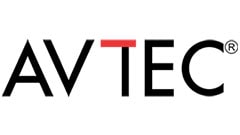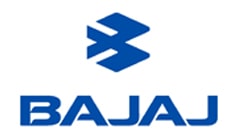Postgraduate Degree in Tool Engineering CP06 – PGTE
August 10, 2023 2025-04-17 1:53Postgraduate Degree in Tool Engineering CP06 – PGTE
Postgraduate Degree in
Tool Engineering
CP06 - PGTE
Duration
The program has a duration of 2 years, divided into 4 semesters. The academic year begins in September and concludes in August.
Program type
This is a PGTE program
Program Fee
Per Semester (Refer Brochure)
Department
Tool Engineering
- About
- Eligibility
- Summary
- Training Methodology
- Curriculum
- Outcomes
- Campus
About
This program is tailored for individuals aspiring to pursue careers in Tool Engineering, Manufacturing Engineering, and CAD-CAM-CAE. It offers comprehensive training, covering diverse aspects such as designing press tools for complex sheet metal components and optimizing production processes for superior quality. Students can expect a holistic learning experience throughout the program, equipping them with the necessary skills for their chosen fields.
Postgraduate Admission Details
Eligibility
To be eligible for this program, a student must meet one of the following criteria:
- Entry Norms: Engineering Degree - Mechanical / Production / Industrial & Production Engineering / Industrial Engineering & Management / Automobile / Aeronautical / Mechatronics
- Eligibility:PASS in Engineering Degree & NTTF entrance exam
- Maximum Age Limit: No Age Limit
Summary
The two-year program offered at Bangalore's Peenya campus provides Engineering Graduates with advanced skills and knowledge in Tool Engineering and Manufacturing. The program emphasizes CAD/CAM/CAE and aims to meet the growing demands of industries.
After completing this program, students can expect to:
- Have thorough knowledge of materials - metals and plastics
- Have thorough knowledge of GD&T concepts and applications
- Design press tools for complex sheet metal components
- Design moulds for plastic components
- Design dies for pressure - die cast components
- Design jigs & fixtures, gauges
- Plan, manufacture and estimate costs of tools, dies and moulds
- Use analytical techniques in the design and analysis of tools, moulds and dies
- Try - out tools to eliminate defects and tune the process conditions to achieve quality production
- Be familiar with shop floor practice to make simple tools
Training Methodology
The program offers:
- Industrial visits
- Talks by experts
- Hands-on training at centers
- Visits to industrial exhibitions and seminars
- Project work during the fourth (final) semester through Internship at an industrial establishment where students will continue as an employee after completing the PG program
Curriculum
| I SEMESTER | II SEMESTER |
|---|---|
| Workshop - I | Workshop - II |
| Engineering Drawing and 3D CAD | Die Casting Dies |
| Advanced Materials and Manufacturing Processes | Inspection & Gauging |
| GD&T and Tolerance Stack Up Analysis | Tool Manufacturing and CAM |
| Jigs & Fixtures - I | Press Tools |
| Plastic Moulds | Jigs & Fixtures - II |
| III SEMESTER | IV SEMESTER |
|---|---|
| Workshop - III | Project |
| Industrial Case Study and Seminar - I | Seminar - II |
| CAE and Rapid Prototyping | - |
| Elasticity, Plasticity and Finite Element Analysis | - |
| Design for Manufacture & Assembly | - |
| Advanced Moulds & Moldflow Analysis | - |
| Advanced Press Tools & Formability Analysis | - |
Outcomes
- This program offers great career opportunities as a Designer of press tools, moulds, jigs & fixtures, die casting dies and as a CAD-CAM-CAE engineer
- Students, after completion of this program, can look forward to a career in many functional departments of Industries employing Precision Engineering, such as Automotive, Consumer Durables, Medical Products & Industries involved in business of similar products.
- After completion of this program, students can expect annual salaries up to Rs.9.0 lakhs based on their performance.
Campus
NTTF School of Postgraduate Studies (SPG)
Post Box No. 5857, 23/24, 2nd Phase, Peenya, Industrial Area, Bengaluru - 560058
Phone: +91 80-28393167 / 28391223 / 6364864695
E-mail: nttf-postgraduate@nttf.co.in
Campus Placements
At NTTF, we connect you with top-notch companies, opening doors to exciting career prospects. Join us and unlock a future filled with success, growth, and limitless potential!






















Student Testimonials
We at NTTF are overwhelmed to receive positive feedback consistently from our students and alumni over the years. Here are a few alumni testimonials highlighting our programs and training facilities.
FAQ
What is a Master of Engineering degree?
A Master of Engineering (M.Eng. or ME) is a graduate-level professional degree focused on the practical and applied aspects of engineering, designed for those looking to advance their technical skills and career in engineering practice. Unlike a Master of Science, which emphasizes research, the M.Eng. program prioritizes hands-on projects, industry collaboration, and the application of advanced engineering principles. This degree is ideal for engineers aiming to deepen their expertise, gain leadership skills, or transition into managerial roles. For those interested, NTTF offers a Postgraduate Degree – M.E in Tool Engineering, specializing in the practical applications of engineering in the tooling industry.
Is a Master of Engineering a good degree?
Yes, a Master of Engineering degree is highly valued, especially in specialized fields like Tool Engineering. It enhances your technical expertise, making you more competitive in the job market. NTTF’s program is industry-aligned, ensuring graduates are equipped to meet the demands of modern engineering roles in sectors like automotive, aerospace, and consumer electronics.
How many years is a Master of Engineering?
The duration of a Master of Engineering degree typically ranges from 1.5 to 2 years. NTTF’s Postgraduate Degree in Tool Engineering – CP06 – PGTE is a 2-year full-time program, offering comprehensive training in advanced tool design and manufacturing techniques. Our PGTE program has 3 Semester on campus and 1 Semester Industry internship with stipend, allowing students to continue with the same industry for job if nature of work is found suitable by both parties (student and respective industry).
What are the courses in Master of Engineering?
Courses in a Master of Engineering program vary by specialization. At NTTF, the Postgraduate Degree in Tool Engineering – CP06 – PGTE covers subjects such as Advanced Tooling Design and Development, CAD/CAM, Finite Element Analysis (FEA), and Manufacturing Processes, complemented by hands-on training and industry projects.
Is a Master of Engineering the same as MTech?
They are different but the Master of Engineering (MEng) is equivalent to the Master of Technology (MTech) in terms of academic rigor and recognition. Both degrees are considered equivalent in India and are respected by employers across industries. NTTF’s MEng in Tool Engineering is designed with a strong practical orientation, making it highly valuable in the engineering sector.
Can I get a job with a Master of Engineering?
Absolutely. A Master of Engineering degree, especially from NTTF, opens up numerous job opportunities. Graduates can pursue roles in Tool Design, Manufacturing, R&D, and Product Development. NTTF’s strong industry connections and emphasis on practical skills ensure that graduates are well-prepared for engineering positions in top companies.
What is the MEng qualification?
The MEng qualification is a postgraduate degree that signifies advanced proficiency in a specific engineering discipline. NTTF’s MEng in Tool Engineering focuses on equipping students with both theoretical knowledge and practical skills needed to excel in tool design and manufacturing.
Is MEng worth doing?
Yes, pursuing an MEng is definitely worth it, especially in a specialized and technical field like Tool Engineering. NTTF’s program not only enhances your technical skills but also increases your employability by providing industry-relevant training and project experience.
Who is eligible for Masters of Engineering?
Eligibility for the Master of Engineering program at NTTF requires candidates to have a Bachelor’s degree in Engineering or a related field, with a strong foundation in subjects relevant to Tool Engineering. Specific eligibility criteria may vary, so it’s advisable to check NTTF’s admission requirements.
Is a Master of Engineering hard?
Like any advanced degree, a Master of Engineering requires dedication and hard work. The curriculum at NTTF is rigorous and designed to challenge students, but with the right approach and commitment, it is manageable and rewarding.
Is Master of Engineering postgraduate?
Yes, the Master of Engineering (MEng) is a postgraduate degree. NTTF’s Postgraduate Degree in Tool Engineering – CP06 – PGTE is designed for individuals who have completed their undergraduate studies and wish to pursue advanced education in engineering.
Is BSc or MEng better?
An MEng is a higher qualification than a BSc, as it provides specialized knowledge and advanced technical skills. For those aiming for leadership roles or specialized positions in engineering, an MEng, such as NTTF’s Tool Engineering program, is the better option.
What is the cost of a Master of Engineering in India?
The cost of a Master of Engineering degree in India can vary widely depending on the institution. NTTF offers a competitive fee structure for its Postgraduate Degree in Tool Engineering – CP06 – PGTE, with detailed information available upon request or during the admission process. Download our brochure for the fee details.
What is the entrance exam for master engineering?
Entrance exams for Master of Engineering programs vary by institution. For NTTF’s Postgraduate Degree in Tool Engineering – CP06 – PGTE, the selection process includes an entrance test, focusing on assessing the candidate’s aptitude and knowledge in relevant engineering fields.
Is a Master of Engineering a good degree?
Yes, the Master of Engineering is a respected degree that opens up advanced career opportunities in various engineering sectors. NTTF’s specialized program in Tool Engineering is particularly beneficial for those looking to excel in the tool design and manufacturing industry.
Is MEng better than MS?
The MEng and MS degrees cater to different career paths. The MEng is often more application-focused, preparing students for industry roles, while the MS may be more research-oriented. NTTF’s MEng in Tool Engineering is ideal for those looking to enter the workforce with advanced technical skills.
Does MEng make you an engineer?
Yes, an MEng degree enhances your qualifications as an engineer, particularly in specialized fields. Graduates of NTTF’s MEng in Tool Engineering are well-prepared to take on roles in tool design, manufacturing, and product development.
What jobs can you get with a MEng?
With an MEng in Tool Engineering from NTTF, you can pursue various roles, including Tool Designer, Manufacturing Engineer, Product Development Engineer, R&D Engineer, and more. The program’s industry-oriented training ensures you are job-ready upon graduation.
What are the benefits of MEng?
The benefits of an MEng degree include advanced technical knowledge, higher employability, and better job prospects. NTTF’s program also offers hands-on experience and industry connections, giving graduates a competitive edge in the job market.
Is MEng equivalent to MTech?
Yes, the MEng is considered equivalent to MTech in India. Both degrees are recognized by employers and educational institutions alike. NTTF’s MEng in Tool Engineering provides the same level of advanced education and practical skills as an MTech.
Is MEng a higher degree?
Yes, the MEng is a higher degree than a Bachelor’s degree, offering specialized knowledge and skills that are essential for advanced engineering roles. NTTF’s program is designed to meet the demands of industry professionals and prepares graduates for leadership positions.



